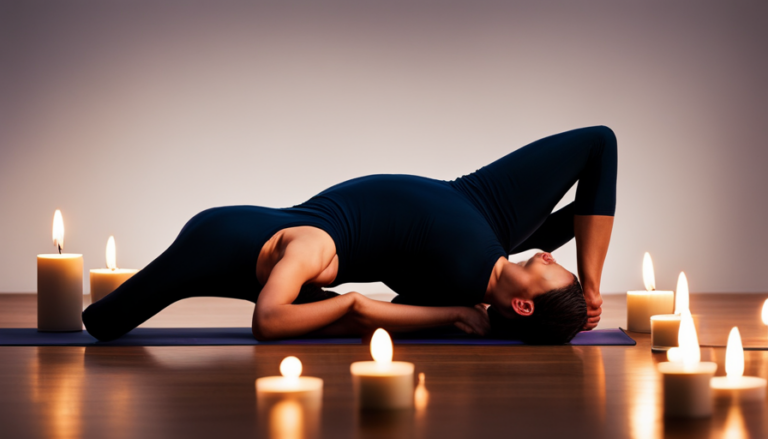How Mindfulness Can Help Ease Anxiety And Worry
It’s estimated that one in four Americans have a diagnosed anxiety disorder. Anxiety and worry can seem overwhelming, but…
It’s estimated that one in four Americans have a diagnosed anxiety disorder.
Anxiety and worry can seem overwhelming, but there is a way to ease the burden – mindfulness.
Mindfulness is the practice of intentionally focusing on the present moment.
It’s a way to observe your thoughts and feelings without judgment, and to redirect your attention away from the worries of the past or future.
To gain a better understanding of how mindfulness can help ease anxiety and worry, consider the story of a young teacher in California.
After struggling with anxiety for years, she began practicing mindfulness.
She soon found that her anxious thoughts lost their power over her.
She felt calmer and more in control of her thoughts.
Mindfulness can be a powerful tool in managing anxiety and worry.
Let’s explore how it can help.
Key Takeaways
- Mindfulness eases anxiety and worry by focusing on the present moment
- Mindfulness allows observation of thoughts and feelings without judgment, leading to self-compassion and self-love
- Mindful practices like deep breathing, counting to 10, and focusing on the present moment can relieve stress
- Mindfulness encourages awareness of thoughts and emotions without judgment, helping to manage anxiety and worry with more ease
What is Mindfulness?
You might be wondering what mindfulness is – it’s a way of paying attention to the present moment in a non-judgemental way. Mindfulness allows us to observe our thoughts without judgement and to recognize which thoughts are helpful and which are not. Through mindfulness, we can reframe our thoughts and practice self-compassion.
This process of self-reflection can help us gain insight into our emotions and feelings, allowing us to gain a better understanding of ourselves. With this understanding, we can begin to practice the art of being present and mindful in our day-to-day lives, which can help to reduce anxiety and worry.
By learning to observe and accept our thoughts and feelings without judgement, we can become more aware and understanding of our own needs. This increased awareness can lead to an increased sense of self-compassion and self-love. With this increased sense of self-compassion and self-love, we can start to take meaningful steps towards easing our anxiety and worry.
Moving forward, we can explore the benefits of mindfulness for anxiety and worry.
Benefits of Mindfulness for Anxiety and Worry
Discovering the power of mindful practices can drastically reduce the intensity of your anxiousness and fears. Mindfulness can help you to pause and reflect before responding to a stressful situation, allowing you to recognize your anxiety and respond to it in a more mindful and healthy way. Through mindful practices, such as deep breathing or focusing on the present moment, it is possible to reduce stress and gain a sense of calm.
For example, when feeling overwhelmed by anxiety, practicing calming techniques can be of great help. Taking some deep breaths, counting to 10, and focusing on the present moment can be very effective in relieving stress. Mindfulness can also help to bring clarity, giving you the space to identify the source of your worries, allowing you to see the situation more clearly and objectively. This can help to reduce your worries and ultimately lead to more peace of mind.
By engaging in mindful practices, you can gain a greater understanding of yourself and your anxiety. Through this self-reflection, it is possible to gain a greater sense of control over your anxious thoughts and feelings, helping to reduce the intensity of worry and anxiety. Transitioning to the next section, practicing mindfulness can become a powerful tool in reducing stress and improving your overall wellbeing.
Practicing Mindfulness
Practicing mindfulness can be a life-changing experience, transforming even the most intense stress into an absolute breeze! To begin, it can be helpful to start with mindful eating and mindful walking.
Mindful eating involves being aware of every bite of food, savoring every taste, and noticing how it feels in the body. Mindful walking is the practice of noticing the sensations of every step and how the body feels in motion.
The practice of mindfulness can help to reduce anxiety and worry by encouraging us to be aware of our thoughts and emotions, and to let them pass without judgment. This can help us to become more aware of our own thought patterns and reactions, which can in turn help us to manage our anxiety and worry with more ease.
From here, we can transition into tips for managing anxiety and worry with mindfulness.
Tips for Managing Anxiety and Worry with Mindfulness
By utilizing mindful practices, we can learn to better manage our stress and anxieties. When it comes to dealing with anxiety and worry, creating space and identifying patterns are two mindful strategies that can be incredibly beneficial.
Creating space means allowing yourself to take a step back to observe the situation from a place of non-judgement and understanding. This gives you the opportunity to begin to recognize any patterns or underlying causes that may be contributing to your anxiety.
Identifying patterns helps us to gain greater insight into our anxious thoughts and feelings, and helps us to respond to them in a more meaningful way. For example, if you notice a pattern of worrying about things that you can’t control, you can begin to practice accepting and reframing your thoughts in a more positive light.
Mindfulness can also help us to recognize when we are getting caught up in worrying and to take action to prevent it from escalating. With regular practice, we can learn to better manage our anxieties and worries.
Conclusion
Mindfulness isn’t a magical cure-all for anxiety and worry, but it can help you take a step back from these overwhelming feelings. It’ll give you a moment to pause and recognize your thoughts and emotions in a compassionate way.
With practice, you can learn to accept these worries and anxieties as part of life, rather than letting them take over. Mindfulness is a great way to give yourself a break and learn to cope with the ebbs and flows of the world.
Take some time for yourself and explore what mindfulness has to offer. You won’t regret it.


